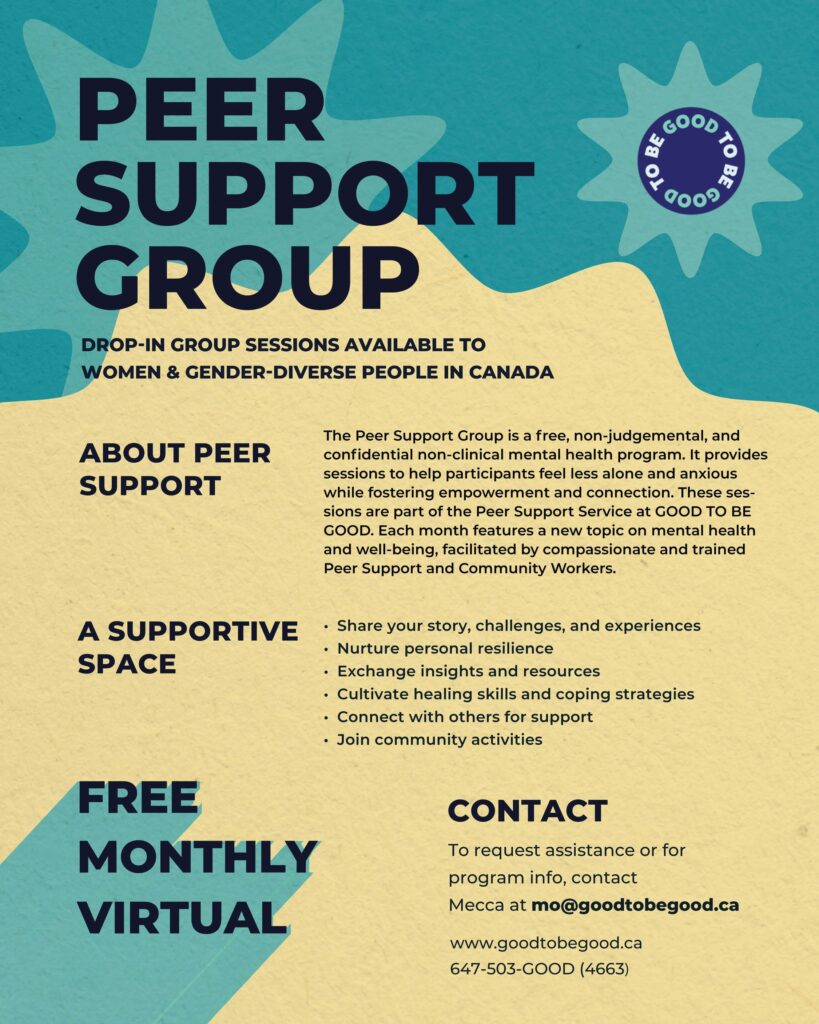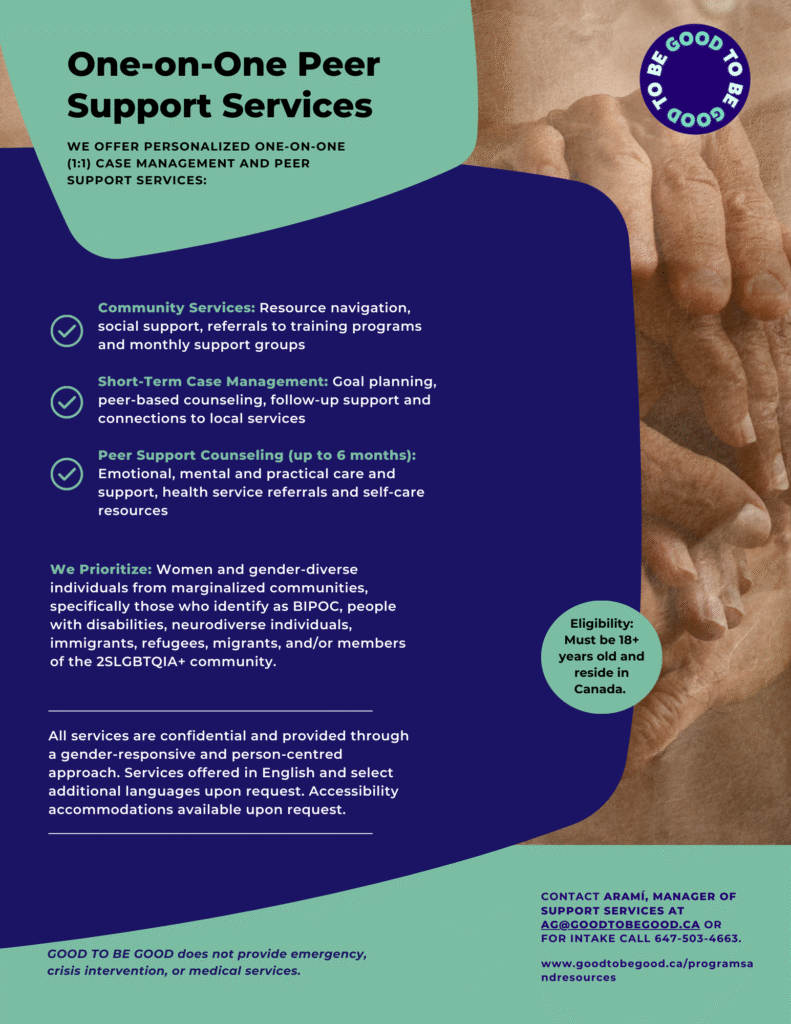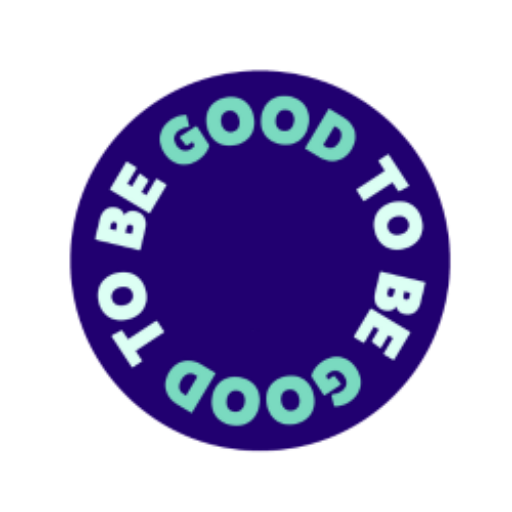PEER SUPPORT SERVICES
We offer a range of free supports and programs for women and gender-diverse people from communities facing systemic barriers to equity.
Our offerings include advocacy, peer support, skill-building, and low-barrier services designed to help individuals and communities move forward.
Our programs centre the rights, access, and lived experiences of women and gender-diverse people, with a focus on inclusion, safety, and choice.
HOW TO ACCESS PEER SUPPORT SERVICES
Who it’s for: Women & gender-diverse people (18+) from our priority communities.
To learn more about who we serve and program participation, visit the General Helpful Information section.
Where & how: Services are free, confidential, and available in English and select languages and formats.
Getting started:
Step 1: Email or call us to express interest in accessing Peer Support Services (see below for contacts).
Intake is free and takes about 30–45 minutes by phone or video. We aim to keep the process safe, respectful, and low-barrier.
Step 2: A team member or Community Worker will follow up to schedule a brief intake.
We’ll only ask questions that help us understand how to support you—nothing more. You’re always in control. You can pause or stop the process at any time, and we’ll always check in to make sure you feel safe continuing.Step 3: After your intake, we’ll explore what supports may be available based on your needs, goals, and our current capacity.
What happens next:
We’ll support you with listening, advocacy, resources, and referrals based on your goals. Services may include 1:1 support, case management, group sessions, or external referrals—all provided with care and intention.
Not sure where to begin? That’s okay! Reaching out is a powerful first step—and we’re here when you’re ready.
Please note: we are not a crisis or emergency service. If you’re in immediate danger, we can help connect you with appropriate, trusted options and supports
PEER SUPPORT SERVICES
Our Peer Support Services are free, confidential, and open to women and gender-diverse people (18+) from our priority communities. Grounded in trauma-informed and feminist values, these services provide non-judgmental, community-based support that centres autonomy, care, and dignity.
Whether someone is facing systemic barriers, navigating challenges, or simply seeking a supportive space to feel heard, our team is here to walk with them.
Through case management, support groups, community education workshops, 1:1 peer counselling, resource and referral navigation, advocacy, our trained team supports participants in accessing the tools, information, and wraparound services they need to build safety, connection, agency, and healing in ways that honour their rights, goals, and needs—on their own terms.
Want to learn more? Click below to expand and see full program info.


PEER SUPPORT GROUPS
Community and connection are powerful. Sharing space with others who have similar experiences can support healing, learning, and growth.
Our Peer Support Groups program runs monthly through our Peer Support Services— free, community-based sessions open to women and gender-diverse people. These peer-to-peer spaces offer a chance to talk about well-being, share experiences and resources, challenge gender norms, and build a sense of belonging.
Groups are facilitated by Peer Support staff with lived experience, and may include guest speakers and wellness-focused activities. Group topics can include:
Healing From Trauma
Work-Life Balance
Navigating Systems as a BIPOC Woman
Relationships & Caregiving
Self-Care & Collective Care
We aim to create a safer, compassionate, gender-affirming, non-clinical, trauma-informed support group where participants feel supported, empowered, and less alone.
Registration is required for each group session to help us manage space. No referral is needed. New participants are always welcome—and there’s no pressure to attend every month.
We also offer additional support through advocacy, referrals, and access to personalized resources.
Peer Support Groups and General Program Contact:
Mecca Ongy, Community Worker & Program Coordinator
Email: [email protected]
Call or Text: 647-503-GOOD (4663)
Translated Versions: French (Français) | Hindi (हिन्दी)
Our Peer Support Groups program is intended for individuals who self-identify as part of our priority communities. To maintain a safe, supportive, and peer-focused space, we cannot accommodate representatives from institutions or organizations attending for research, observation, or organizational purposes.
ONE-ON-ONE PEER SUPPORT
We offer free, confidential one-on-one (1:1) peer support for women and gender-diverse community members (18+) through phone or video appointments. Services are tailored to each person’s unique needs and goals, and available in English and select languages.
Our team builds trusting, person-centred relationships—offering supportive listening, peer counselling, advocacy, and practical help to meet women and gender-diverse participants where they are.
This service can support with:
- Access resources, referrals, and community services
- Navigate challenges like stress, grief, housing, or service barriers
- Set goals and explore solutions that work for you
- Connect with others in your support network or care team
- Advocate for your rights and choices
Referrals are made with care to ensure they align with your needs. To get started, email us to book an intake. After connecting, a team member will reach out to learn more about your situation and schedule your first session.
Peer Support Program and 1:1 Services Contact:
Aramí Galeano, Manager of Support Services
Email: [email protected]
Phone or Text: 647-503-GOOD (4663)
We do not provide crisis response or medical services. If you, or someone you love is at immediate risk please contact your local emergency services.
COMMUNITY EDUCATION & WORKSHOPS
In addition to monthly Peer Support Groups, we offer free workshops and information sessions that support the well-being and empowerment of women and gender-diverse community members.
These sessions are a chance to learn, connect, and grow—together. Topics may include:
- Health and wellness
- Creative and skill-building activities
- Substance use awareness and prevention
- Community safety and self-advocacy
- Voting rights and civic engagement
- Other emerging needs identified by the community
Each session is designed to be practical, accessible, and relevant—providing tools, knowledge, and supports that honour participants’ safety, dignity, joy, and rights.
To learn about our practices around privacy, consent, participation, feedback, and who we serve, visit the General Helpful Information section.

 DONATE
DONATE